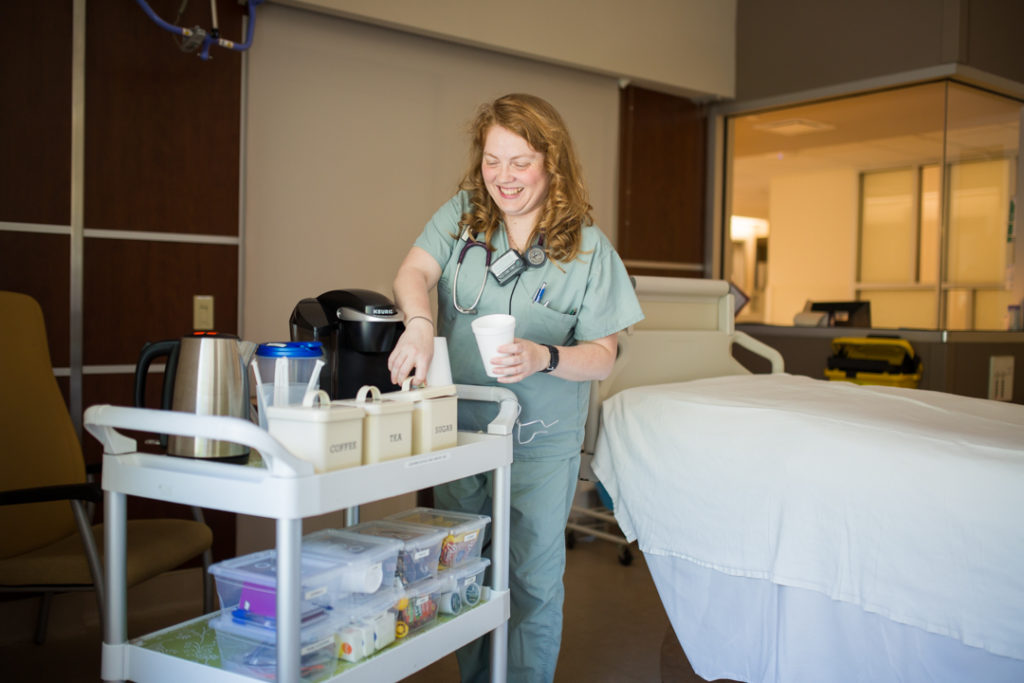
Cart brings comforts of home
When patients are very sick in the intensive care unit (ICU), collecting comforts from home isn’t a luxury their families often have time for. Things can change quickly, and they want to make sure they’re at their loved one’s side for every possible moment.
“Within the ICU we do unfortunately see a lot of deaths,” says Rachel Schofield, a registered nurse in the ICU at Juravinski Hospital & Cancer Centre. “A lot of times when we asked if we could get families anything, they said, ‘no no no.’ Families felt like they were burdening us if they accepted an offer.”
She and her team wanted to develop a simple way of supporting families as they prepared for the death of a loved one. Inspired by an HHS Share article about end of life initiatives in the ICU at Hamilton General Hospital, they decided to create a comfort cart.
“…what they remember as they leave is the act of caring and the art of comfort.”

The cart is stocked with items such as soft tissues and snacks to help families through a sad and stressful time. It has supplies for making coffee or tea and journals and pens for reflecting and recording memories. It even carries an assortment of phone chargers—an important item that’s often forgotten at home.
“It takes away the guilt of leaving the bedside,” Rachel says. “Sometimes death comes quickly and sometimes it doesn’t. Families can’t always prepare themselves with some of the basic necessities. This way we can provide them a bit of a break while they still stay with their loved ones. We’ve been finding that it’s helping families feel a bit less anxious and more relaxed. It’s a little piece of home.”
The cart has also provided a simple, but meaningful way for staff to support their patients beyond the medical care they provide. Personal donations and proceeds from staff pop sales fund the purchase of items that need to be refilled.
“It’s been beneficial for both families and staff on the unit,” Rachel says. “Patients and families appreciate the medical care they receive, but what they remember as they leave is the act of caring and the art of comfort.”
